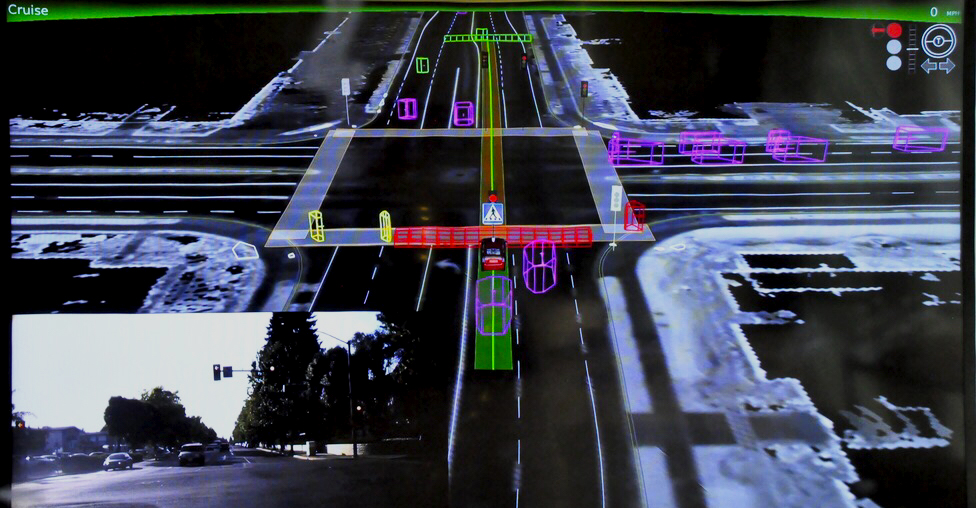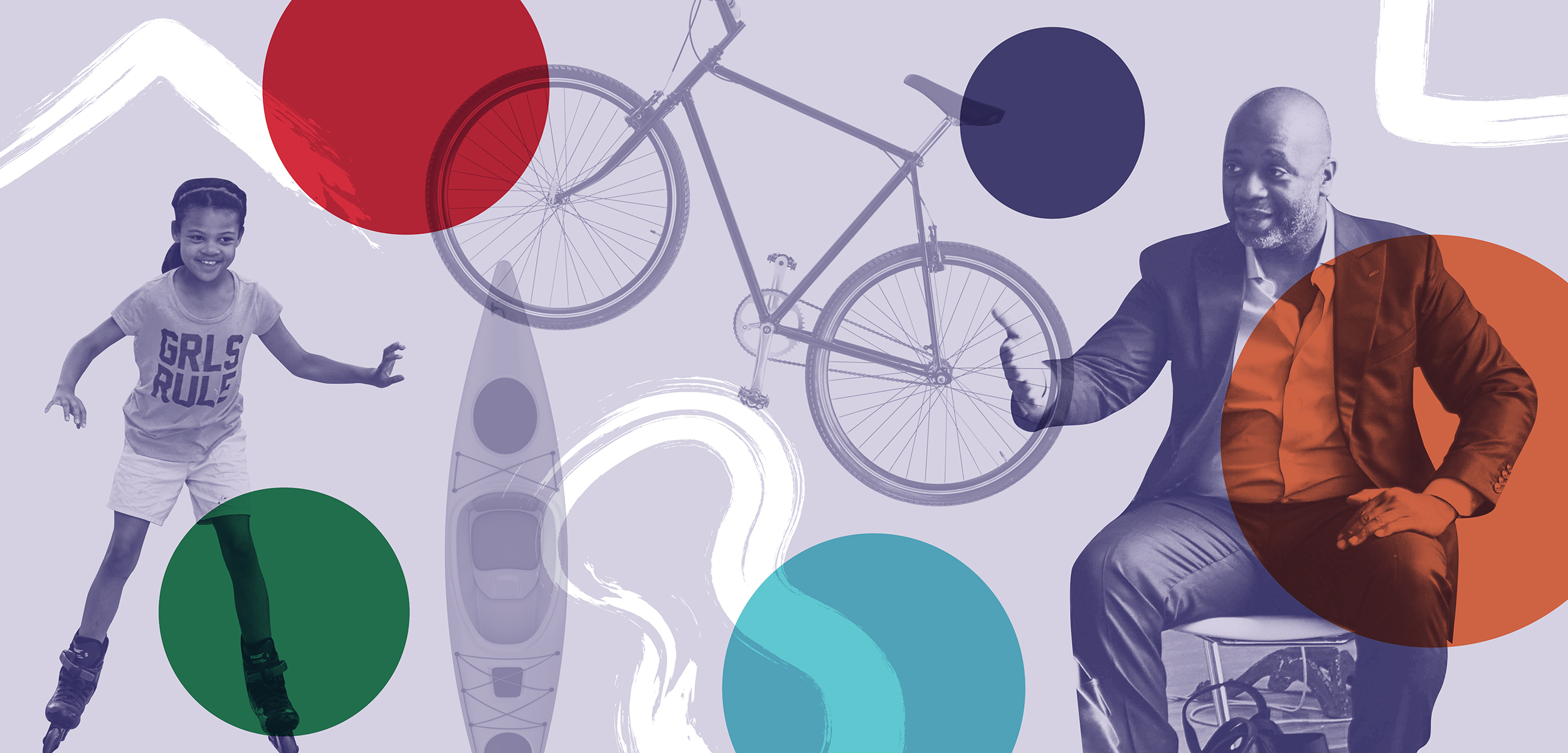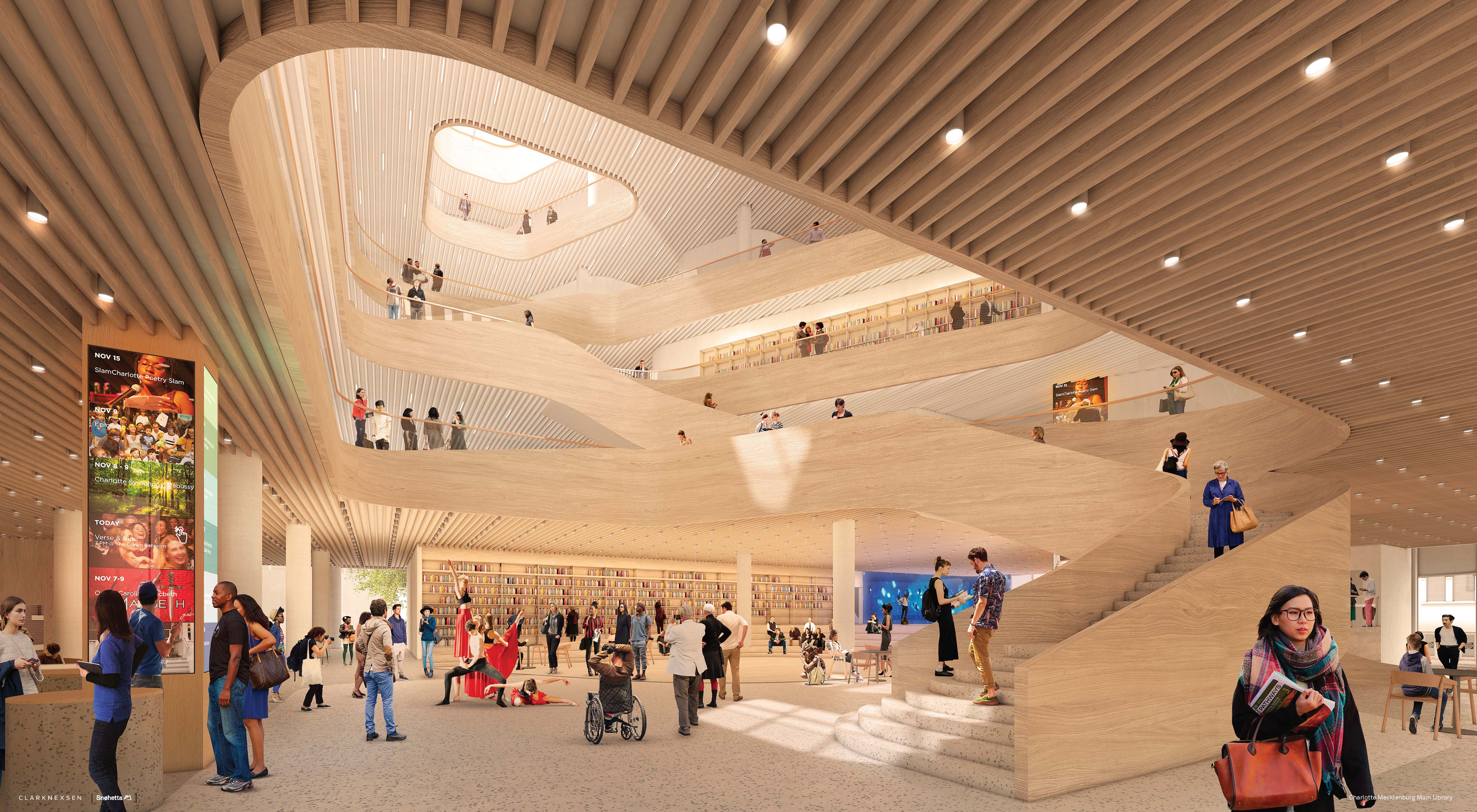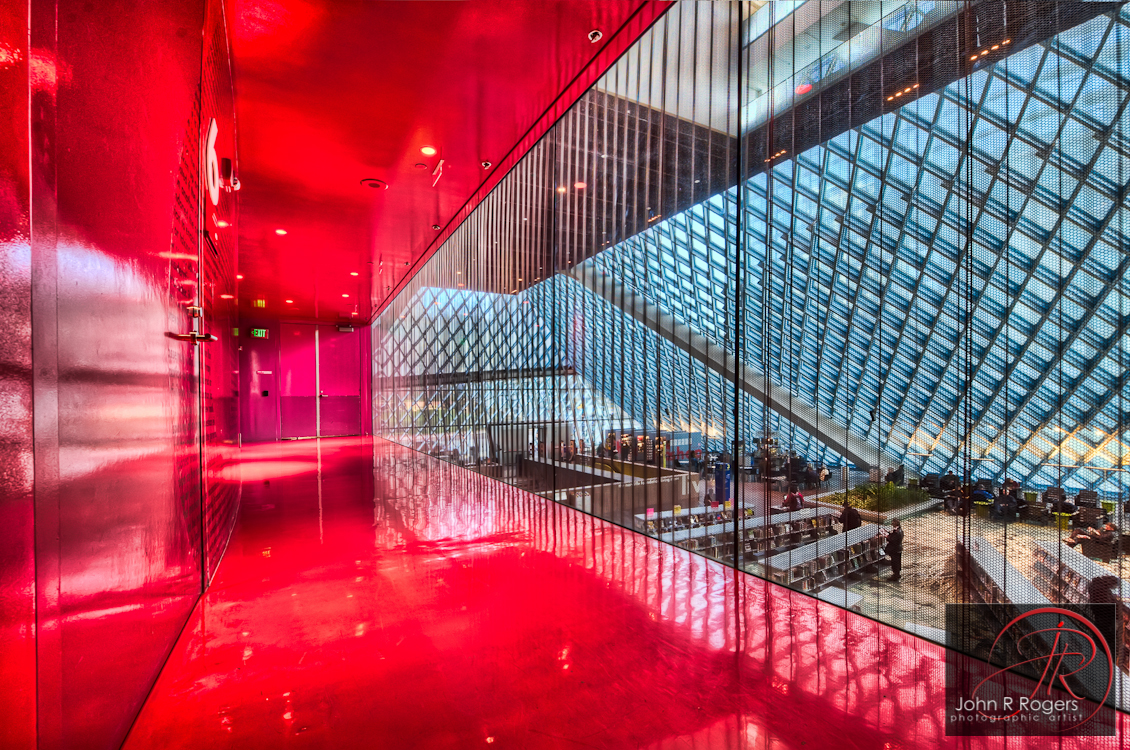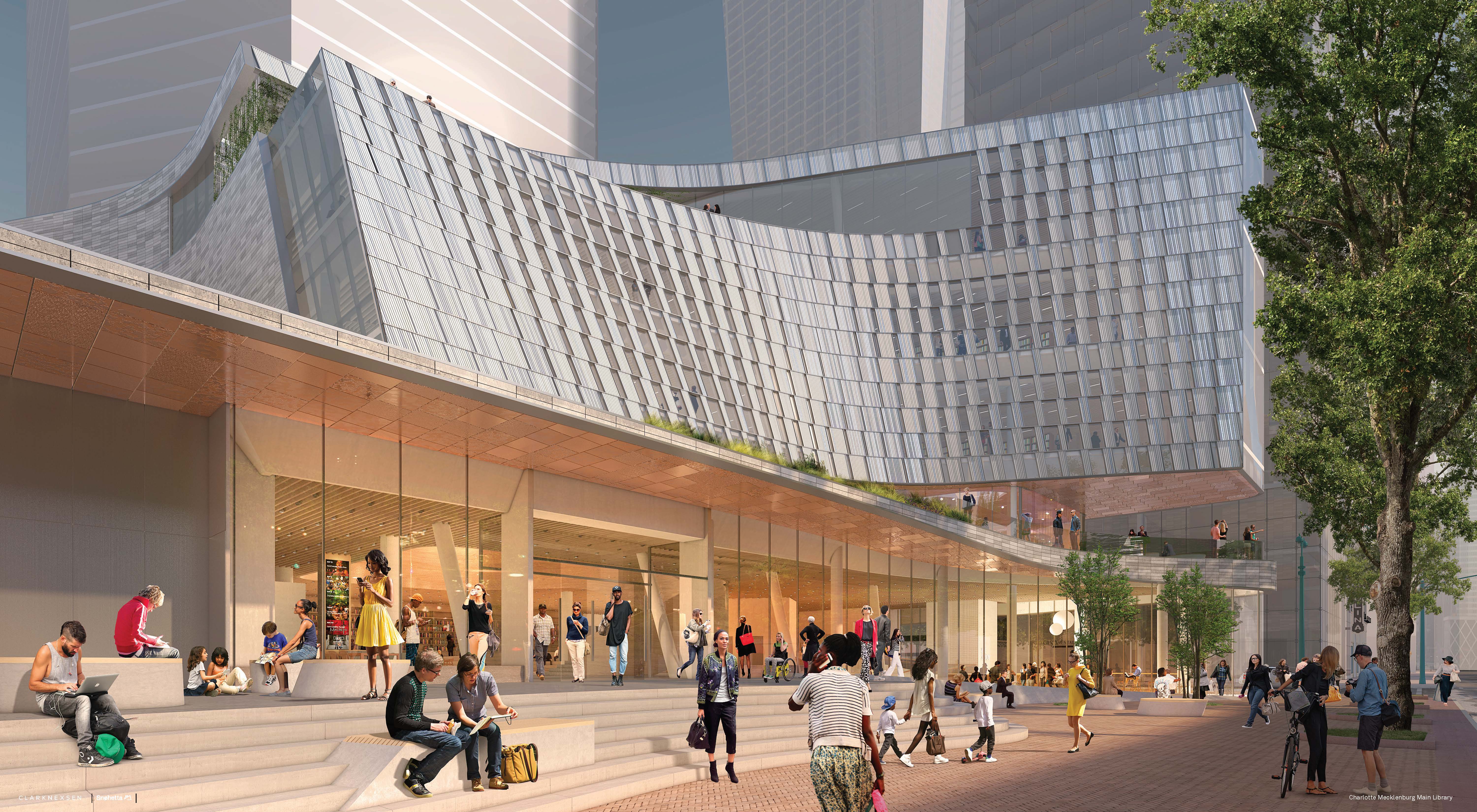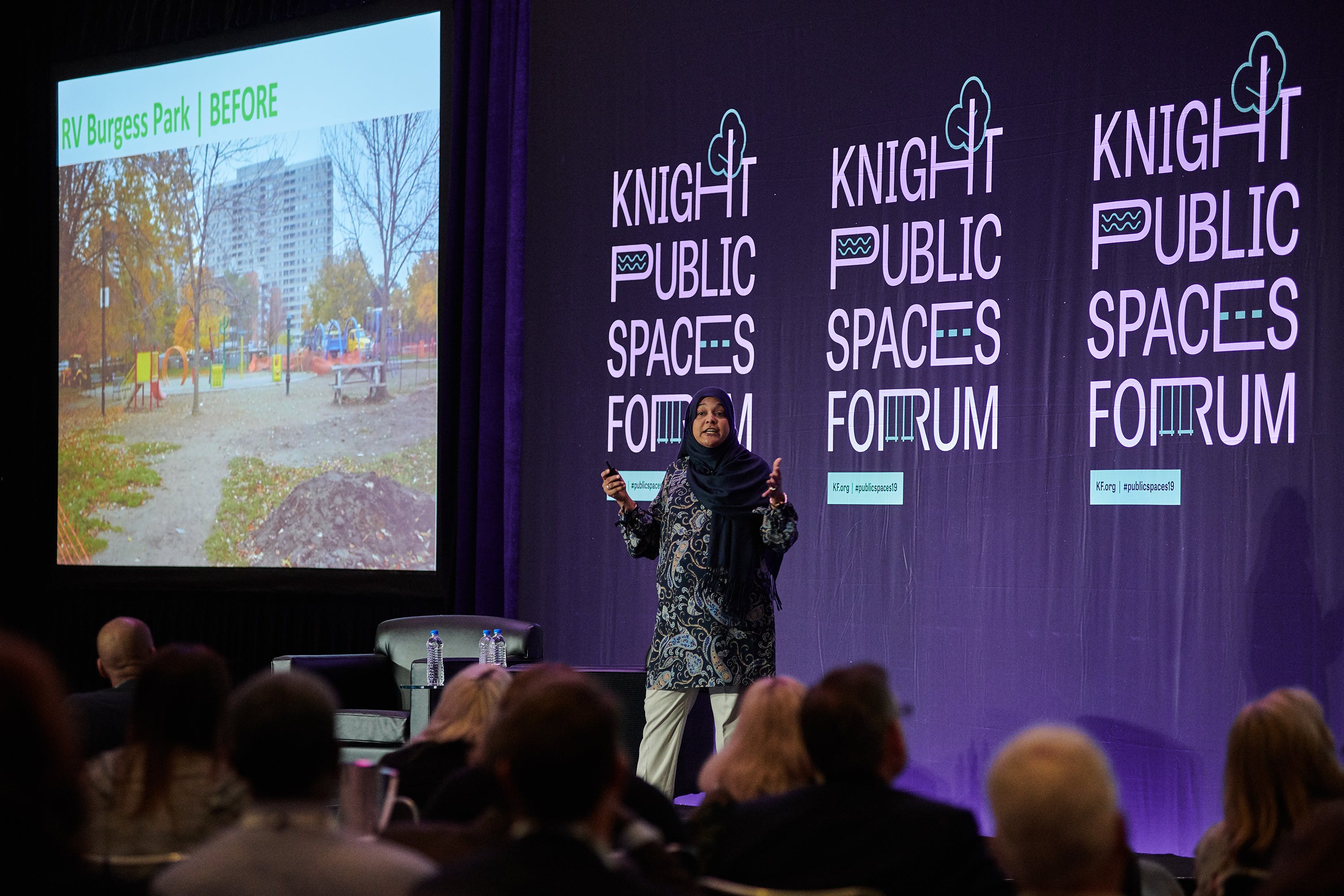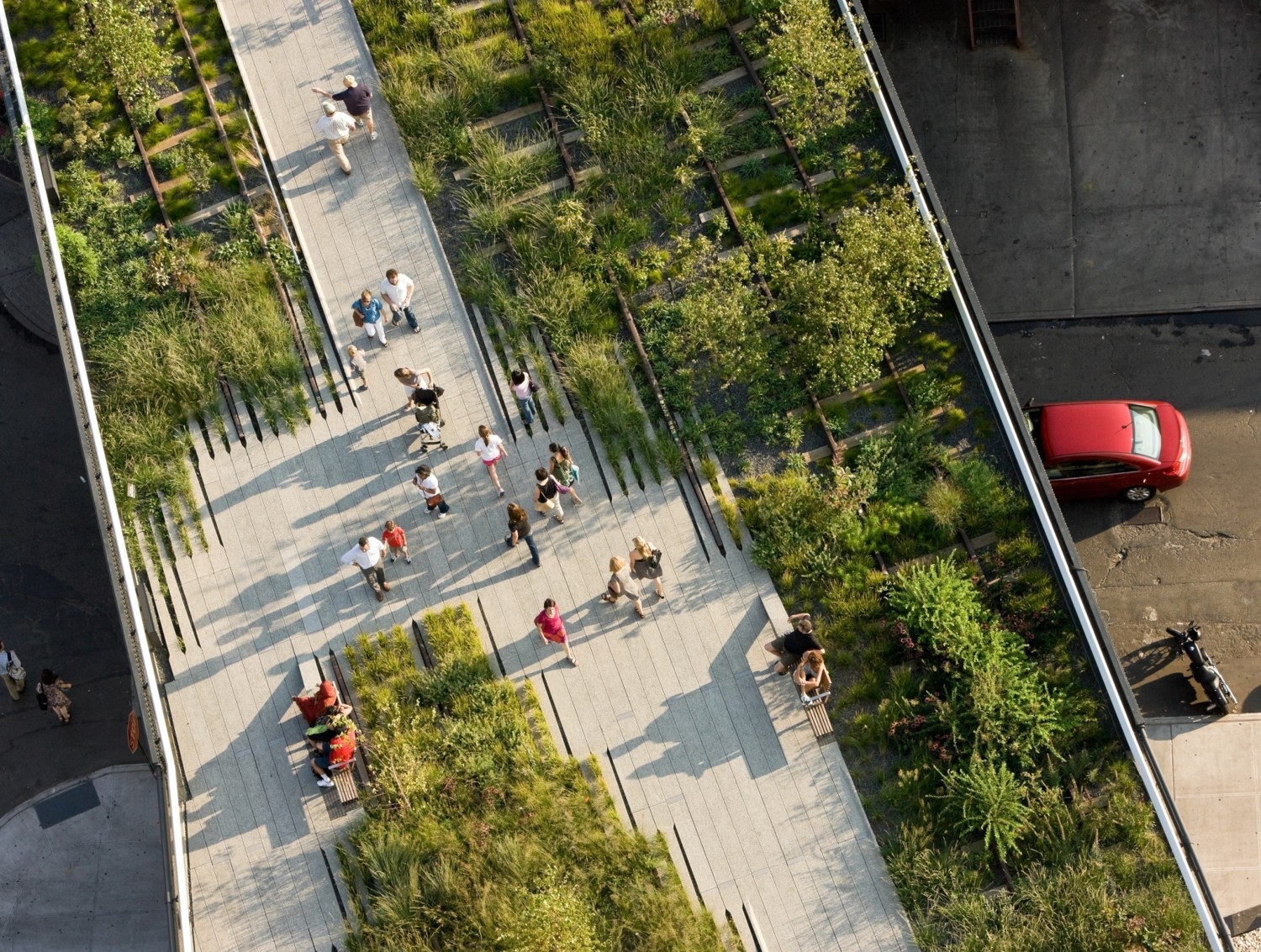On November 13, Knight Foundation opened a new call for ideas exploring transformational ways data can be used to build stronger, thriving and more engaged communities. Knight’s Lilian Coral shares details below. See the press release here and view a recording of our informational webinar here.
Imagine, at the main intersection near your home, seeing freshly painted crosswalks and new signals alerting vehicles, bicyclists and pedestrians of oncoming traffic. Last year, the neighborhood was concerned because of multiple accidents in the area.
Impressed that the city has finally done something about this issue, you ask Siri to let your local council member know you support efforts to improve pedestrian safety. You get an alert on your phone, thanking you for your feedback, and soon after see a Facebook notification about the planning department’s virtual town hall meeting to reimagine the blighted corner down the street. Since you have ideas to add more outdoor activities, you decide to participate.
This vision relies on the power of open data. That intersection was identified based on collision and injury data. Signals collect data about riders and usage patterns. Resident feedback can be collected from different platforms or services — public or private. That feedback then needs to be shared — as points of data — with the planning department, or shared through applications connected to Siri.
When digital devices like our phones make our lives easier, they do that through the robust, seamless exchange of data. Much of that data is harnessed to improve commercial services — our food orders, ride shares, and the social media sites where we connect with family and friends.
But this is just the tip of the iceberg. The power of data — especially “open” data, made available by government and, in some cases, private companies — also extends to the possibility of better informing and engaging residents, encouraging them to participate in more civically-focused activities.
It’s in this context that Knight Foundation is issuing an open call for ideas that advance the concept of open data and civic engagement to encourage a new set of transformative approaches for using, understanding and taking action with public data. Selected recipients can earn a share of up to $1 million in funding for their ideas and projects.
If we meet people in digital spaces, can we advance new approaches for sharing, displaying, interpreting and communicating with data? What are some alternative ways to collect and analyze data to inform smarter, more collaborative decisions? What are the user-friendly ways to serve, empower and engage residents, and help them build stronger, more thriving communities?
The idea of public access to open data is not new. In addition to government, more private enterprises are actively publishing open data. For example, Uber Movement’s Open Data portal provides anonymized data from more than 2 billion Uber trips for noncommercial reuse. This volume of data, while technically “open,” is not actually accessible to nontechnical experts. Many residents are not “citizen scientists,” and efforts to train them to become more data savvy are slow and force them to earn the right to engage civically in a digital age.
But the vision for doing more with data, including seamlessly engaging with government, is alive and well. Burgeoning examples of civic data use that doesn’t rely on technical expertise — but meets residents where they are — show the potential for significant community impact.
By working with organizations already focused on using data to engage communities, and concentrating funding on a critical mass of projects in a narrow set of communities, Knight Foundation can gain insights on successful practices that move communities closer to a vision of participatory, inclusive and engaged communities.
Our new open call on data for civic engagement is part of Knight’s broader work in Smart Cities, which seeks to support stronger, more engaged communities by enabling the voice of the community to be reflected in the design and use of technology.
Whether it be accident and collision data, park scores, walkability, housing density, local government information or demographic information—all of these data points have the opportunity to radically change the way residents interact with neighbors, government and their community. If we want to accomplish our goals with open data, we must unlock its use for millions of Americans who seek to participate in their community and make more informed decisions that engender equitable, inclusive and participatory communities
Lilian Coral is Knight Foundation director for national strategy and technology innovation. Follow her on Twitter @lcoral.
You may also be interested in…
-
Community Impact / Article
-
Community Impact / Press Release
-
Community Impact / Report

